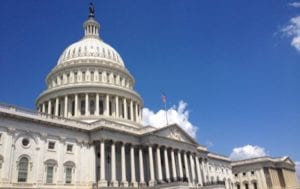Consumer groups: DOT’s aviation consumer protection advisory committee tilted in favor of industry

The groups’ letter cited the failure of the ACPAC’s membership to meet FACA’s requirement that federal advisory committees be “fairly balanced” in the views represented. Smith spent the past 12 years with CEI, a pro-business think tank, and has never worked on aviation consumer protection issues. Secretary Rahn’s agency is statutorily preempted from working on consumer protection issues related to airline travel. The ACPAC’s other two representatives are the general counsel of the airlines’ largest trade association and executive director of the Indianapolis Airports Authority. In light of this industry-friendly slant in the makeup, the groups indicated that it is unlikely that the views of the flying public will be adequately considered by the committee.
“Congress created the ACPAC as an important venue for the flying public to hold the DOT and the airline industry accountable for everything from rising ancillary fees to shrinking seat sizes,” said John Breyault, vice president, public policy, telecommunications and fraud at the National Consumers League, which organized the letter. “Unfortunately, Secretary Chao has chosen to pack the ACPAC with members whose first interests are likely to be the airlines’ bottom lines, not consumers’ pocketbooks. Such a makeup is unlikely to be ‘fairly balanced,’ as required by the law.”
The FAA Modernization and Reform Act of 2012 requires that DOT appoint a “consumer representative” and a “state or local government representative” with expertise in aviation consumer protection to the ACPAC. Historically, the committee’s members included an experienced and committed advocate for aviation consumers and a state attorney general to represent the interests of the flying public. This enabled the ACPAC to make balanced recommendations on important consumer protection issues like accessibility for customers with disabilities, improving consumer complaint handling, and the need to educate flyers about their rights regarding delays and lost baggage.
“To our knowledge, none of Ms. Smith’s extensive career experience has involved consumer protection matters pertaining to aviation,” wrote the groups. Similarly, the Maryland Department of Transportation aviation responsibilities are directed to management of Baltimore/Washington International Thurgood Marshall and Martin State airports, not consumer protection. As such, Secretary Rahn’s perspective is likely to be “essentially duplicative” of Mario Rodriguez’s, the Executive Director of the Indianapolis Airport Authority, noted the letter.
In addition to the National Consumers League, the letter was signed by the Business Travel Coalition, Consumer Action, Consumer Federation of America, Consumer Reports, EdOnTravel.com, Public Citizen, Travelers United, and U.S. PIRG.
To read the letter, click here (pdf).

Charlie Leocha is the President of Travelers United. He has been working in Washington, DC, for the past 14 years with Congress, the Department of Transportation, and industry stakeholders on travel issues. He was the first consumer representative to the Advisory Committee for Aviation Consumer Protections appointed by the Secretary of Transportation from 2012 through 2018.


